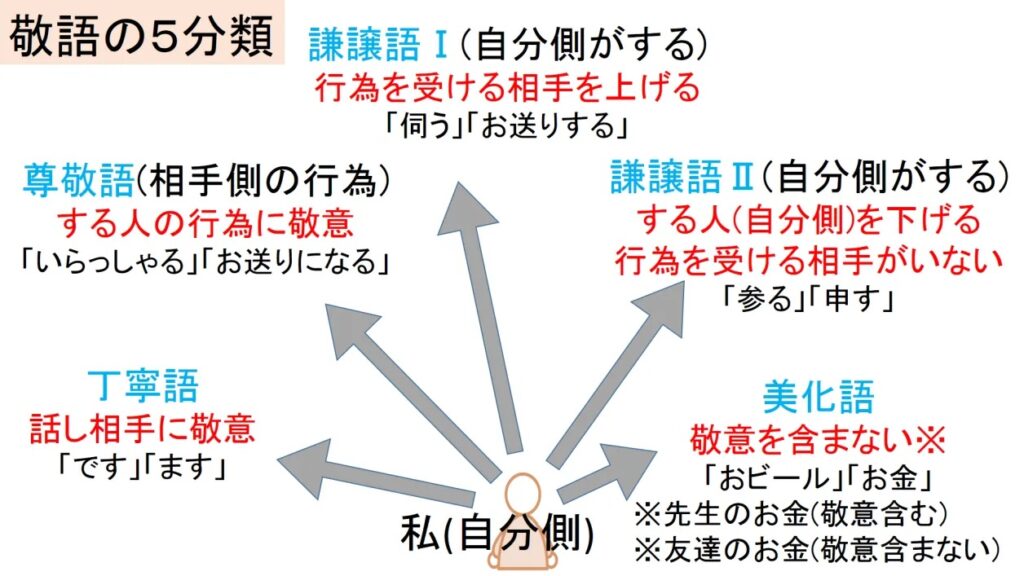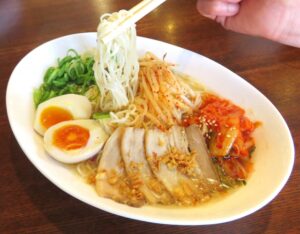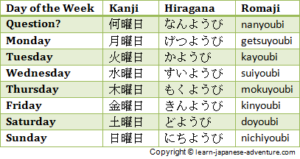
敬語は5種類に分けて考えることができます。
Keigo can be divided into 5 categories
Keigo can be divided into 5 categories
1) 尊敬語 : 「いらっしゃる・おっしゃる」型
Respect language
Respect language
相手側の動作などを言うときに、その動作をしている相手を 高くする。
Elevating the state of the other when referring to their actions of someone superior.
Elevating the state of the other when referring to their actions of someone superior.
<例>
いらっしゃる
めし上がる
お使いになる
読まれる
ご利用になる
お忙しい
2) 謙譲語I:「うかがう・申し上げる」型
Modest language I
Modest language I
自分側の動作などを言うときに、その動作の対象である相手を高くする。
Elevating the other when referring to the actions of yourself.
Elevating the other when referring to the actions of yourself.
<例>
うかがう
申し上げる
お目にかかる
さし上げる
ご案内する
お目にかかる
さし上げる
ご案内する
3) 謙譲語Ⅱ (丁重語) : 「まいる・申す」型
Modest language Ⅱ (Humble language)
Modest language Ⅱ (Humble language)
自分側の動作などを言うときに、話している相手に対して丁寧に言う。
Modest language Ⅱ(humble) is used in order to treat the other politely, when referring to the actions of yourself.
Modest language Ⅱ(humble) is used in order to treat the other politely, when referring to the actions of yourself.
<例>
まいる
申す
いたす
申す
いたす
4) 丁寧語: 「です・ます」 型
Polite language
Polite language
話している相手に対して、 表現全体を丁寧に言う。
Showing respect towards the person to whom you are referring by, incorporating a degree of formality into the entire expression.
Showing respect towards the person to whom you are referring by, incorporating a degree of formality into the entire expression.
<例>
です
ます
5) 美化語: 「お酒・お料理」 型
Beautification language
Beautification language
言葉や物事を美化して (きれいに) 言う。
Beautifying words or things with this form of speech.
Beautifying words or things with this form of speech.
<例>
お酒
お料理
Key:
There are various types of honorifics in Japanese. Honorifics are expressions that respect superiors and are used when you want to make a partner.
In addition, humble language is a humble expression used when you want to make a partner by lowering yourself.
And the polite word with “desu, masu” is an expression that is often used in everyday conversation and is used by anyone.
日本語にはさまざまな敬語があります。 敬語は、上司を尊重する表現であり、パートナーを作りたいときに使用されます。
また、謙虚な言葉は、自分を低くしてパートナーを作りたいときに使われる謙虚な表現です。
そして、「です、ます」という丁寧な言葉は、日常会話でよく使われ、誰もが使う表現です。

Average height of Japanese women and men
2023年7月4日
When you live in Japan for a few years for work or other reasons, it is basically necessary to understand

How to Marry a Japanese Man
2022年7月21日
What kind of image do you have of Japanese men? They may be “diligent,” “financially strong,” “shy,” “small in stature,”

Japanese customs and culture that foreigners found strange when they came to Japan
2023年8月2日
Contents1 Customs and culture differ greatly from country to country.1.1 “Eating noodles noisily”1.2 “Putting your wallet in the back pocket

Numbers, Time, and Days of the Week -数字、時刻、および曜日 –
2020年11月4日
Japanese numbers, time, days of the week, etc. Before we get too much further into Japanese





